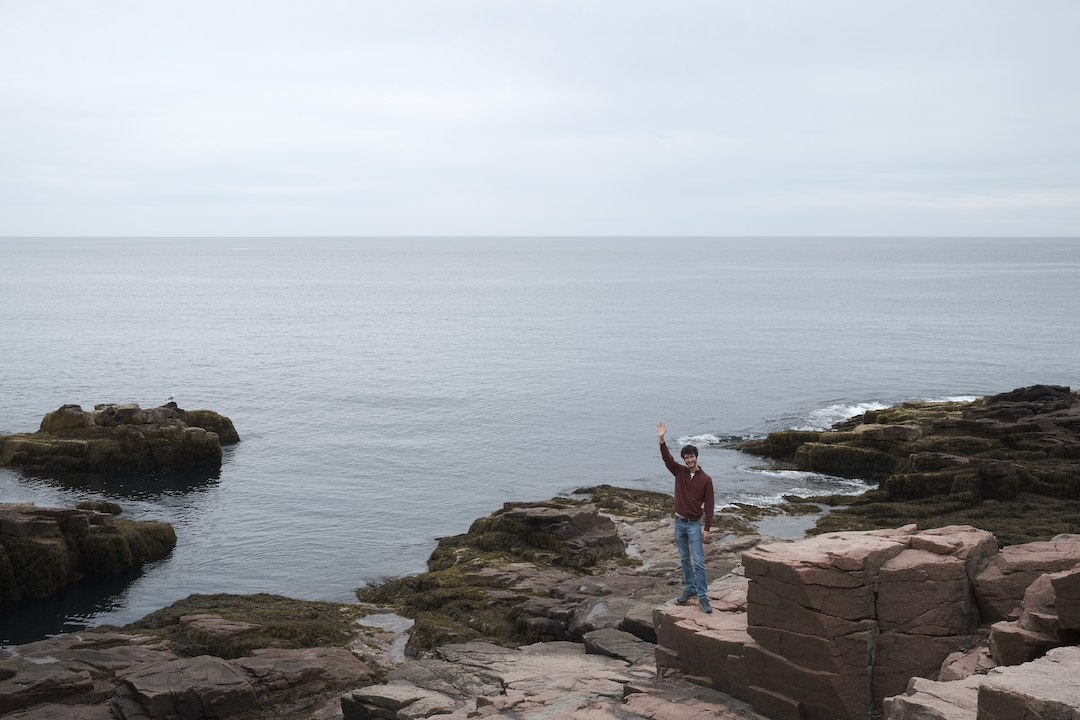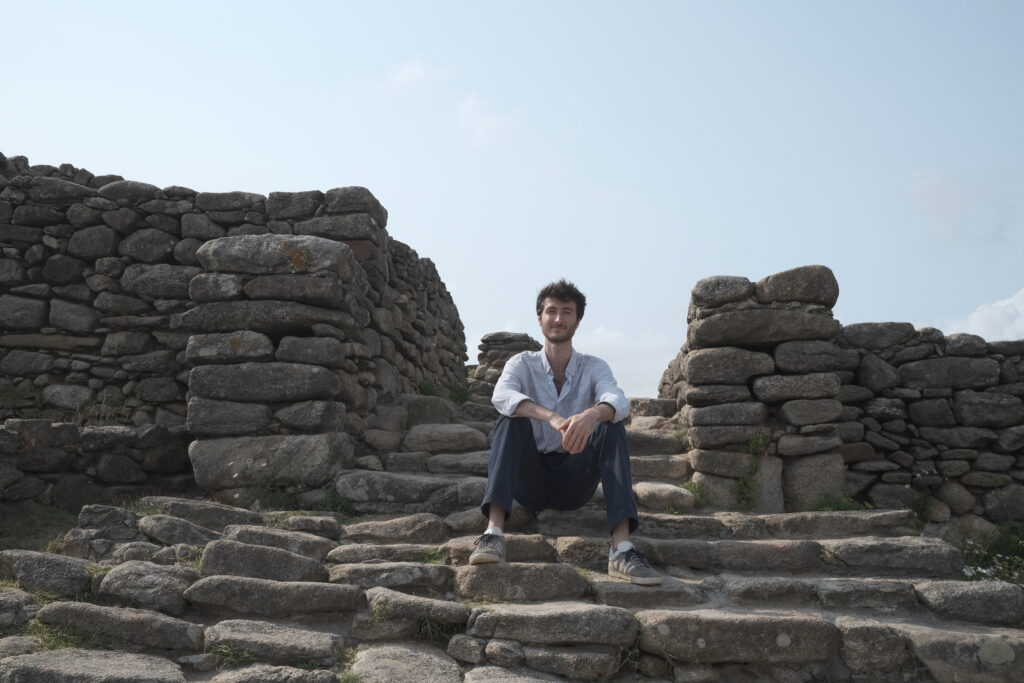Last week, I spoke with a friend who also runs a newsletter called Capuchina. We both started our projects around the same time, so now, about six months later, we had a conversation about the challenges we had faced so far.
I shared an idea with her that I discovered on another blog, ricosylibres.com, which came to me just before starting Esferas and gave me the strength to carry this project forward until today. The idea is about how to set goals in a way that really makes them happen. I begin by explaining the usual way of doing it.
January arrives, and we all set some goals for the next year. They usually look like this: “I’m going to go to the gym three times a week,” “I’m going to try rock climbing,” “I’m going to learn to play the guitar,” “I’m going to meditate for 20 minutes every morning,” “I’m going to keep a journal,” etc.
If this way of setting goals were effective, we would all have Spartan bodies, speak Portuguese, and do crochet. So, what’s the problem then?
When we set a goal, we do it to change our lives in some way. Our habits and conditioning, accumulated over entire lifetimes, have an inertia similar to that of a transatlantic freighter, and now we are asking it to change course. This means that, inevitably, when trying to implement these changes, we will encounter internal difficulties. “It’s hard for me to get up half an hour earlier to meditate,” “I come home tired at night and don’t feel like writing in my journal,” “I forget to do Duolingo,” “I get anxious about signing up for dance classes,” etc.
What we had started to help us be happier has now suddenly become another source of difficulties. “Better to give it up here.” And more or less, this is how we abandon our goals before reaching February.

Before sharing the formula on how to set goals in a more powerful way, I want to explore a bit more what has gone wrong with the first way of doing it.
If we were to survey all the people who have abandoned their goals by February, one of the main reasons that would emerge is that they lacked the willpower.
I’ve always looked at willpower (and effort) with suspicion, and now I understand better why. They both imply force, and force implies resistance. In fact, this is Newton’s third law: if we apply a force, an equal and opposite reaction will appear. This not only applies to solids moving through space; it also happens on a psychological level.
When we make an effort, that is, when we draw on willpower to do something, we inherently experience resistance. If we didn’t experience that resistance, it wouldn’t take effort; it would come naturally. So, what is that resistance? It is the psychological pressure we exert against ourselves to force ourselves to achieve the desired result. It comes, therefore, from the energy of desire, which invariably brings frustration and the feeling of having become slaves.
I remember the years when I forced myself to practice piano. I never felt like it, but if I wanted to be a musician, I had to practice. The resistance grew and grew, and one day, in the middle of the pandemic, I broke down and gave up music. It took me months to even enjoy listening to a song again.
I then understood that by relying on willpower, I had created and fed a great internal conflict. The image that came to me to understand this was that of a rider who wants to reach the top of a mountain before noon. The rider, obsessed with arriving at the desired time, whips and whips his horse to make it run faster. But the horse, which has been galloping for several days with hardly any sleep, food, or water, is exhausted and can’t go on. But the rider doesn’t care; he just wants to get there, and how the horse feels is secondary. Well, that’s the fallacy; the state of the horse is not secondary, it is primary, as it is what will take him to the top. If he doesn’t take care of the horse, letting it rest and feeding it well, he will never arrive. It is the relationship of the tyrant with the slave, of the despotic father with the child. It is an internal position that not only brings suffering but is ineffective and unsustainable.
Ultimately, all that energy used to overcome internal resistance is not being employed to fuel our goal, but to bully ourselves.

Maybe it works for some people, I don’t know. And I’m not saying there aren’t situations where you just have to grit your teeth and push through. What I’m saying is that I don’t think it’s a sustainable way of life and that, sooner or later, the horse ends up collapsing. If that’s the engine we rely on to move our projects forward, we’re already starting off on the wrong foot.
So, what is a position of greater power?
True power doesn’t come from force, but from our understanding, from the meaning that what we’re doing holds for us. Things don’t have meaning on their own; everything is neutral. The meaning is determined by the context in which we hold something, by the perspective from which we view it. This happens automatically, whether we are aware of the context chosen by our mind or not. The broader the context, the deeper the meaning and the more power will arise within us to do what we have to do.
I return to goals, knowing from my own experience that, once understood in this way, the power that will arise in us to achieve them will be much greater than all the willpower could offer. And you only need to read it once. The idea is as follows.
Instead of saying “I’m going to the gym three times a week” or “I’m going to write a weekly letter,” the approach should be “I’m going to write a weekly letter to become the person who is capable of doing that.” The goal is no longer to do something out there (like writing a blog, for example), but to start a process of internal transformation: to grow, actualize a potential, abandon limitations, overcome obstacles, and become the person who is capable of running a weekly blog with ease and enjoyment.
From this broader perspective, when the conflicts that previously led us to quit arise, we will now see them not as obstacles but as signs that the goal is working: it is inviting us to grow, to change, to let go of something and let something new and more powerful take its place. The blog or the flute are just means to pursue a much broader end. They are external tools we use to propel our spirit.

When I started Esferas, the approach was exactly this: “I’m going to write X letters throughout this year to become the person who is capable of doing that.” The challenges began even before writing the first letter.
The website I was designing to host it gave me a lot of problems, and after several very frustrating days, I learned my first lesson: I set aside my pride and some embarrassment and asked for professional help.
Then came the moment to write the first letter, and a wave of fears flooded my body and mind. After several attempts and much anxiety, I finally began my true training: asking for divine help when creating. Immediately, that led me to write “1. The Dragons at the Threshold.”
Since then, the challenges have been constant: anxiety, lack of time, not knowing what to write about, insecurities, not finding the right tone, “this is very weird,” doubts, and all kinds of invisible walls I kept bumping into. If the goal had been “to write a blog,” I probably would have abandoned it before starting because these challenges were really difficult to manage. But the context from which I wrote Esferas kept growing and growing. In the first letter, I expressed that I felt this project, which had been wanting to be born for almost a year, was a commission that the Spirit made to me from my heart through my relationship with Jesus Christ.
Earlier, I said that the broader the context, the greater the available power. God is the infinite context, and if you feel you are doing something because God asked you to, or out of love for God, the power to carry it out is unlimited.
Starting Esferas from that position has made what appears to be a blog become a teacher for me. Every week, I sit with it, and it teaches me to create from inspiration: more like someone who listens than someone who has something to say. It has taught me new things with each letter, things I didn’t know were within me until I wrote them. It has helped me process a huge amount of accumulated anxiety. Anxiety, like all emotions we experience, is not infinite. There is a limited amount, and we can fully free ourselves from its effect if we let go of its underlying energy. Esferas has been a powerful tool to do this.
In short, Esferas has become a spiritual practice and, as such, is in God’s hands. It will stay alive as long as the Spirit wills it, and it will end when I have learned all the lessons that such a project has for me. The project is not to write the blog; those are just the ashes. The fire, the real project, is my spiritual and creative liberation.

When I shared all this with my friend, I revisited this idea, which hadn’t crossed my mind in months. These past few months, my relationship with Jesus has grown exponentially, and I feel His presence more and more as a guide, protector, and refuge. In telling my friend about this, I remembered a part of His Sermon on the Mount, which I have been reading often lately. It goes like this:
“Do not store up for yourselves treasures on earth, where moths and rust destroy, and where thieves break in and steal. But store up for yourselves treasures in heaven, where neither moth nor rust destroys, and where thieves do not break in and steal. For where your treasure is, there your heart will be also.” [Matthew 6:19-21]
I then understood that this idea I just shared is not limited to New Year’s resolutions but applies to life in this world in general. The purpose of this world is not the world itself. The world is just a means. The end is the liberating transformation to which this world invites us. That is the true treasure and the only thing we will take beyond the death of the body.
In those three sentences, Jesus completely recontextualizes the human experience. He doesn’t invite us all to become monks and nuns, but to broaden our perspective as we go through our daily lives in the world. From the conventional, Newtonian perspective of willpower, life’s challenges appear as obstacles. But if the context is expanded and we see this human life as a means for the evolution of our consciousness, we then see that these changing phenomena (our relationships, work, bodily health, etc.) hide a treasure in their challenges: they are opportunities to free ourselves from some program based on falsehood that was making us suffer. By elevating our perspective in this way, the things that make us suffer become means we can use for our salvation and enlightenment. They become master experiences.
With all my love,
A.

Subscríbete a Esferas



